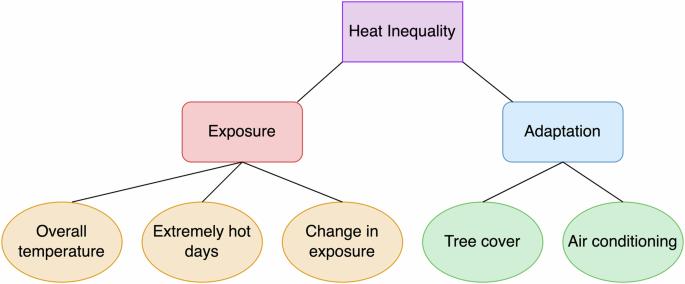More extremely hot days, more heat exposure and fewer cooling options for people of color in Connecticut, U.S.
IF 8.8
Q1 ENVIRONMENTAL STUDIES
引用次数: 0
Abstract
It is well-documented that people of color in the U.S. are disproportionately exposed to extreme urban heat. However, most studies have focused on large cities for one point in time, and less is known about how heat exposure changes over time in smaller cities. Here, we present a study of the changing nature of urban heat exposure and cooling strategies for ten cities in Connecticut in the U.S. Our results show that people of color experience more heat exposure and fewer adaptation strategies. They experienced higher overall temperatures, more extremely hot days, and larger increases in heat exposure. Also, they have lower air conditioning ownership rates and lower tree cover. Taken together, the results indicate that people of color are not only exposed to higher temperatures but also disproportionately exposed to increasing temperatures over time. With lower heat adaptation capacity, people of color are more vulnerable to increasing urban heat.

美国康涅狄格州极热天气增多,高温暴露增加,有色人种的降温选择减少。
美国有色人种过多地暴露在城市极端高温环境中,这是有据可查的。然而,大多数研究都集中在大城市的某个时间点上,对小城市的高温暴露如何随时间变化知之甚少。我们的研究结果表明,有色人种暴露在高温下的时间更长,采取的适应策略更少。他们经历了更高的总体气温、更多的酷热天以及更大幅度的高温暴露。此外,他们的空调拥有率较低,树木覆盖率也较低。综合来看,这些结果表明有色人种不仅暴露在较高的温度下,而且还不成比例地暴露在随着时间推移而不断升高的温度下。由于热适应能力较低,有色人种更容易受到城市高温的影响。
本文章由计算机程序翻译,如有差异,请以英文原文为准。
求助全文
约1分钟内获得全文
求助全文

 求助内容:
求助内容: 应助结果提醒方式:
应助结果提醒方式:


